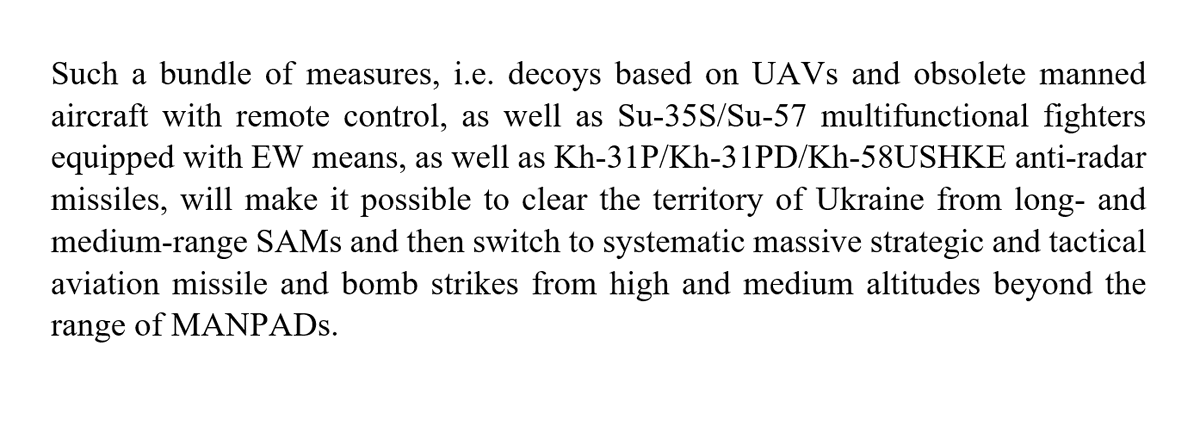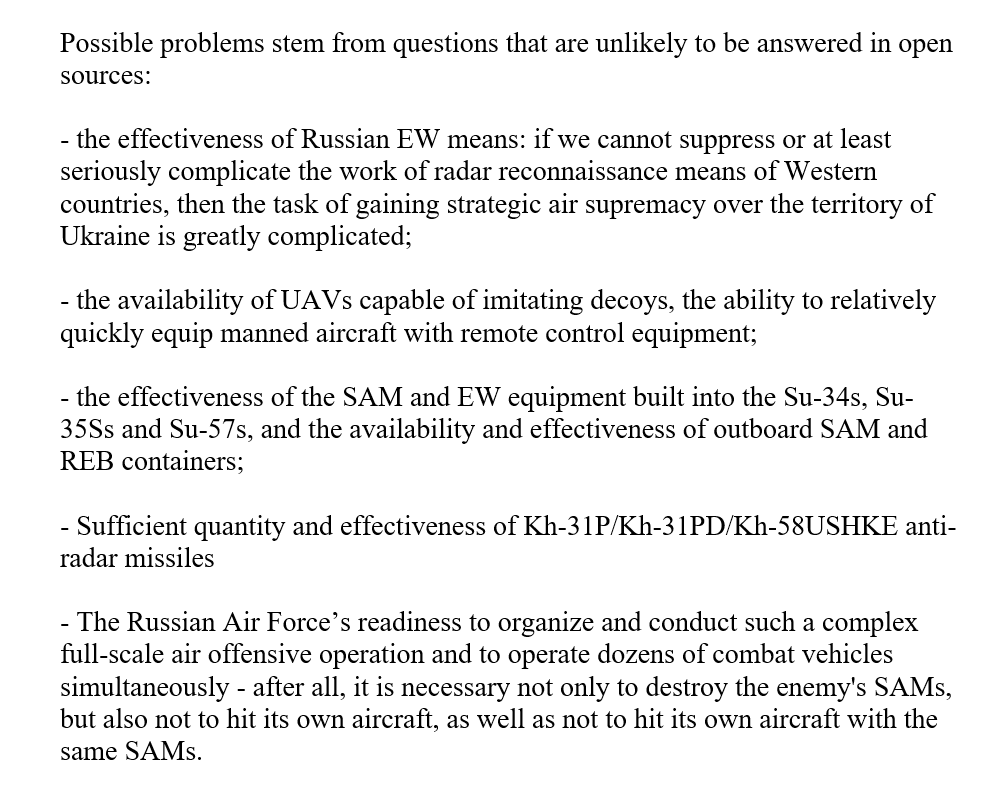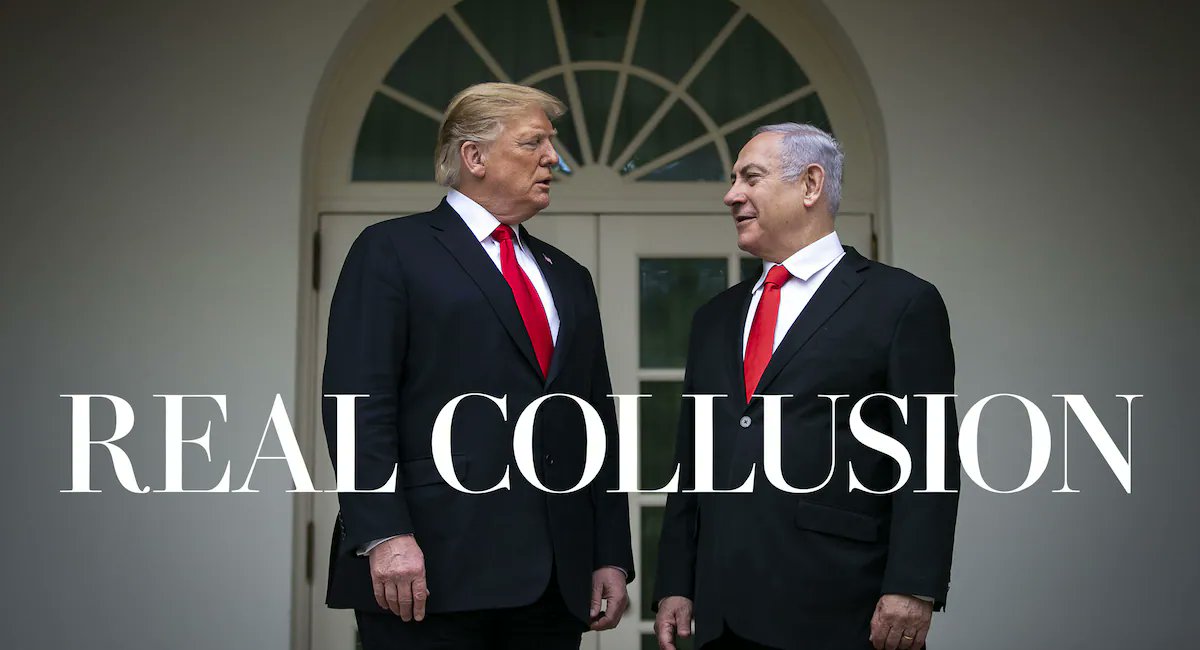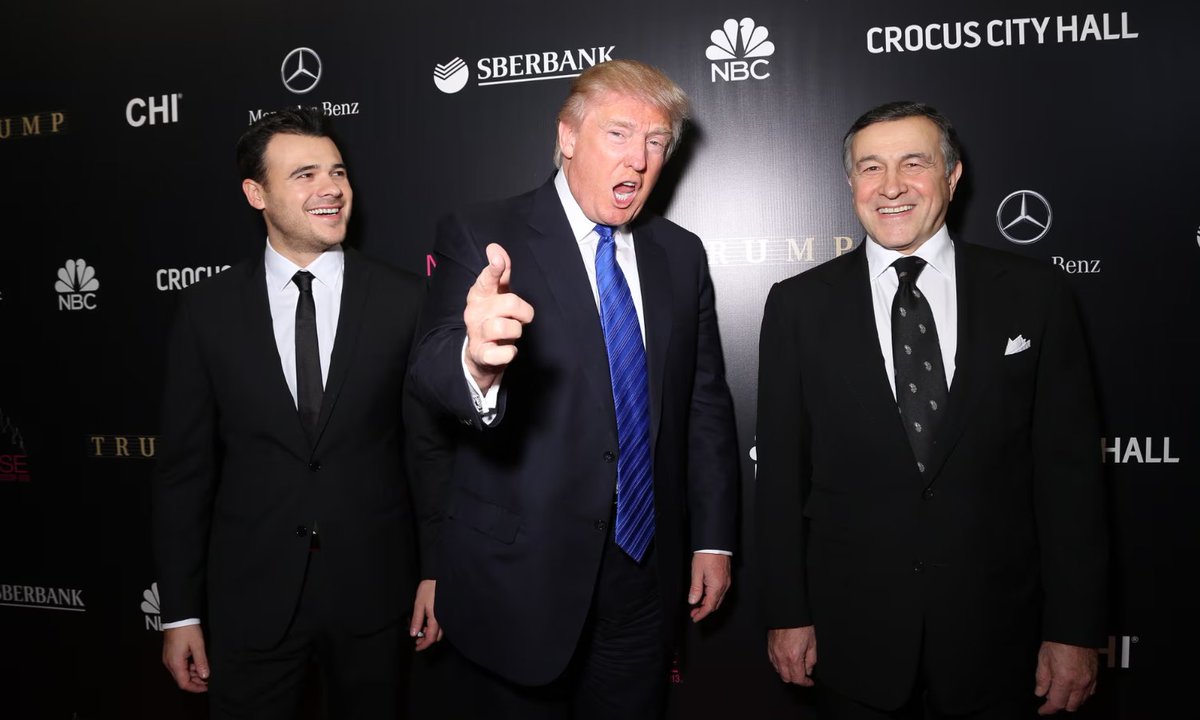Interesting article on the question of Russian air superiority (or its absence). I'll translate & summarize the main points in a thread:
topwar.ru/198065-neudobn…
topwar.ru/198065-neudobn…
The Russian Aerospace Forces have tactical and operational air superiority, but not strategic - they cannot conduct airstrikes deep behind Ukrainian territory (cruise missiles are used for that, but they have specific uses that are more narrow). 

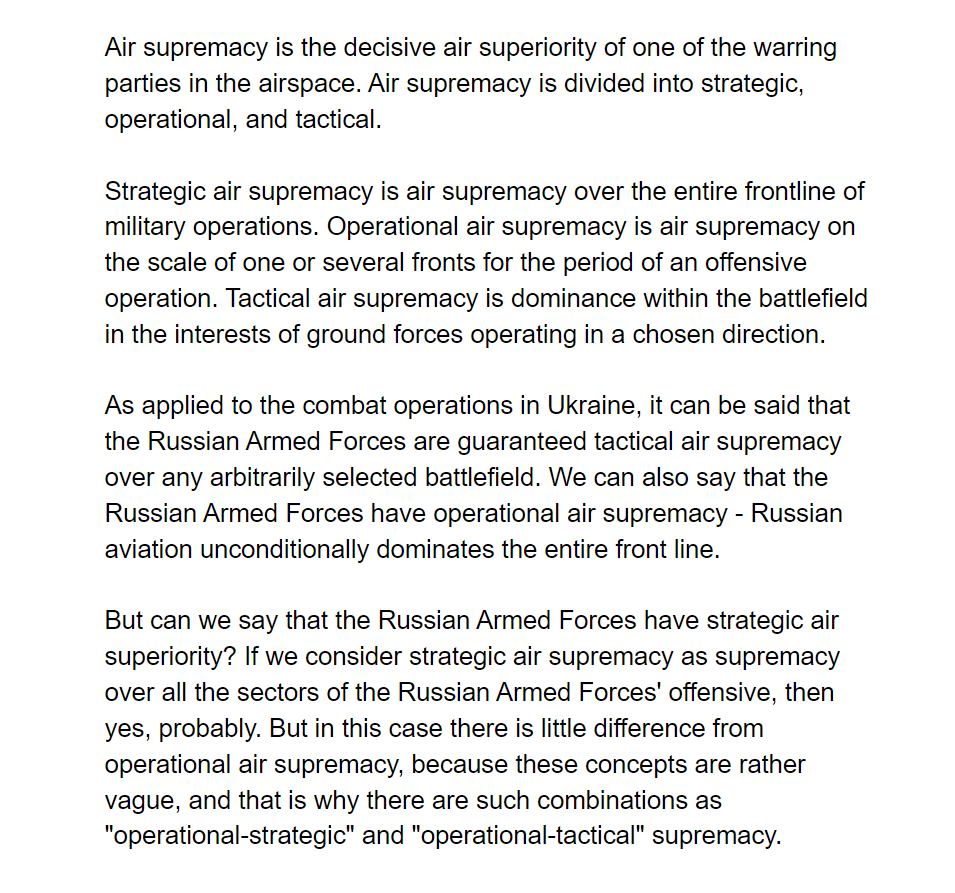
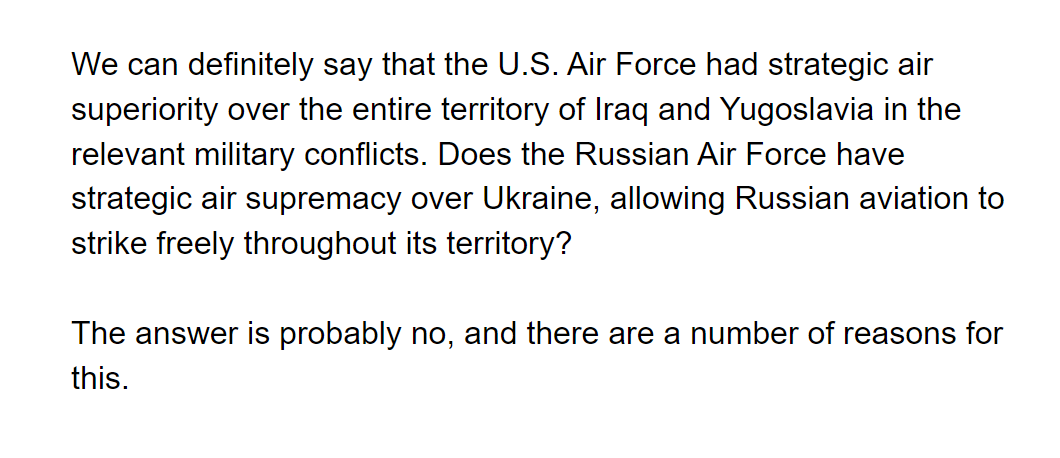
One of the main problems in achieving strategic air superiority is that Ukrainian air defence systems are getting real-time intelligence from AWACS & radar stations that are located outside Ukraine (e.g. in Poland or Romania) and thus cannot be attacked by the Russian military. 
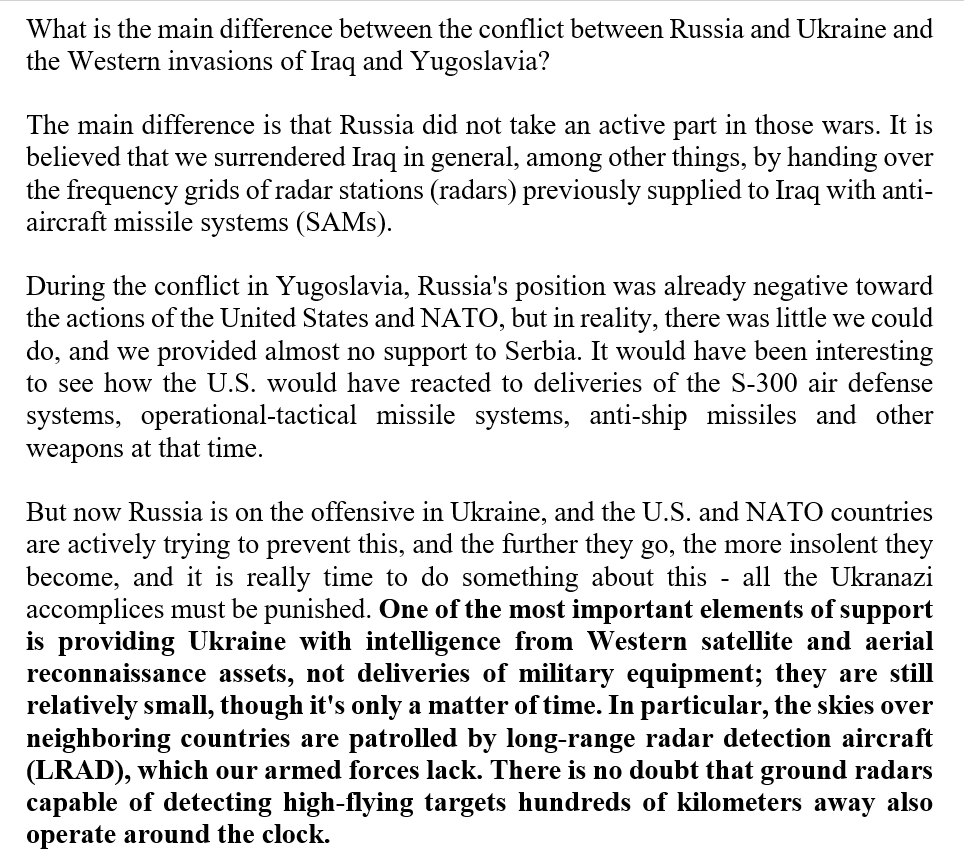
Ukrainian anti-air missile units don't have to give up their positions to fire because they are fed data from Western systems, which is why Russian jets cannot operate freely and have to fly low & close to the frontlines. The author believes that this is a wrong strategy. 
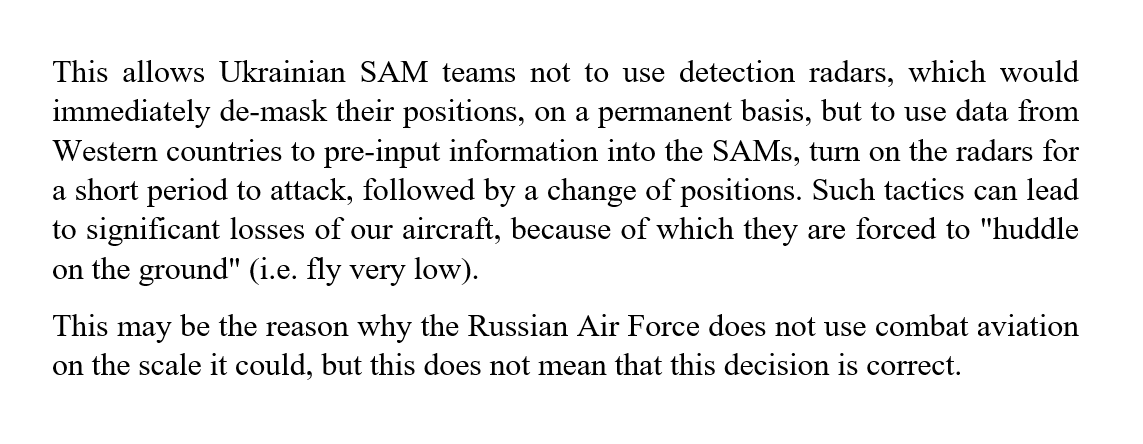
The author believes that Russia's limited use of aviatiion is the reason why Ukrainian infrastructure & logistics are still largely intact. He says that "Russian bombers should hover over Ukrainian territory 24 hours a day, dropping bombs at the slightest movement of the AFU." 
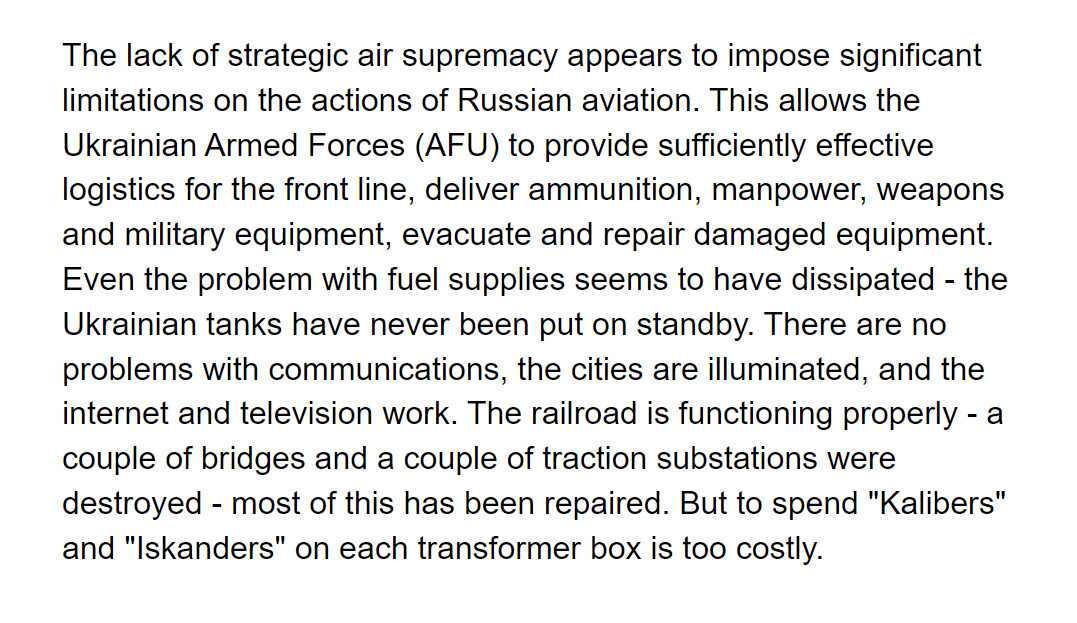
The author believes that the limitations imposed on the Russian Aerospace Forces outweigh the risks of attempting to achieve strategic air supremacy, because jets that fly low are vulnerable to MANPADS & prolonging the conflict lets the AFU kill more civilians in the DPR. 
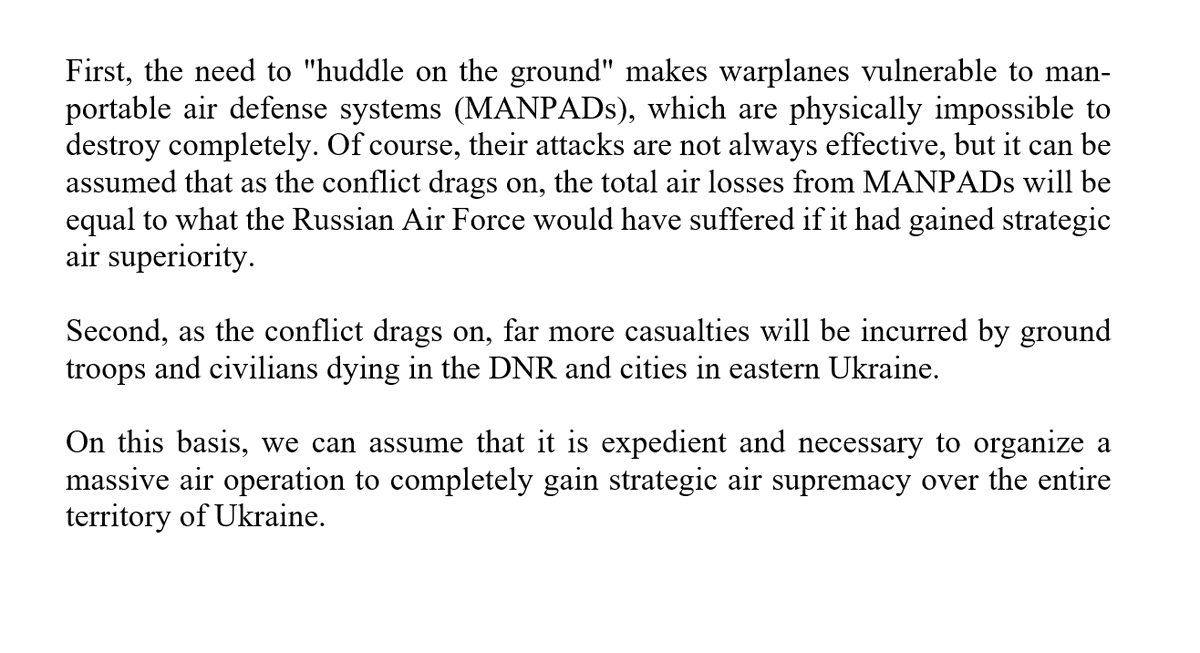
We don't really know whether the Russian military is using all the Electronic Warfare means at its disposal, but the author believes that if it isn't (in order to hide capabilities from NATO), it should abandon this practice. 
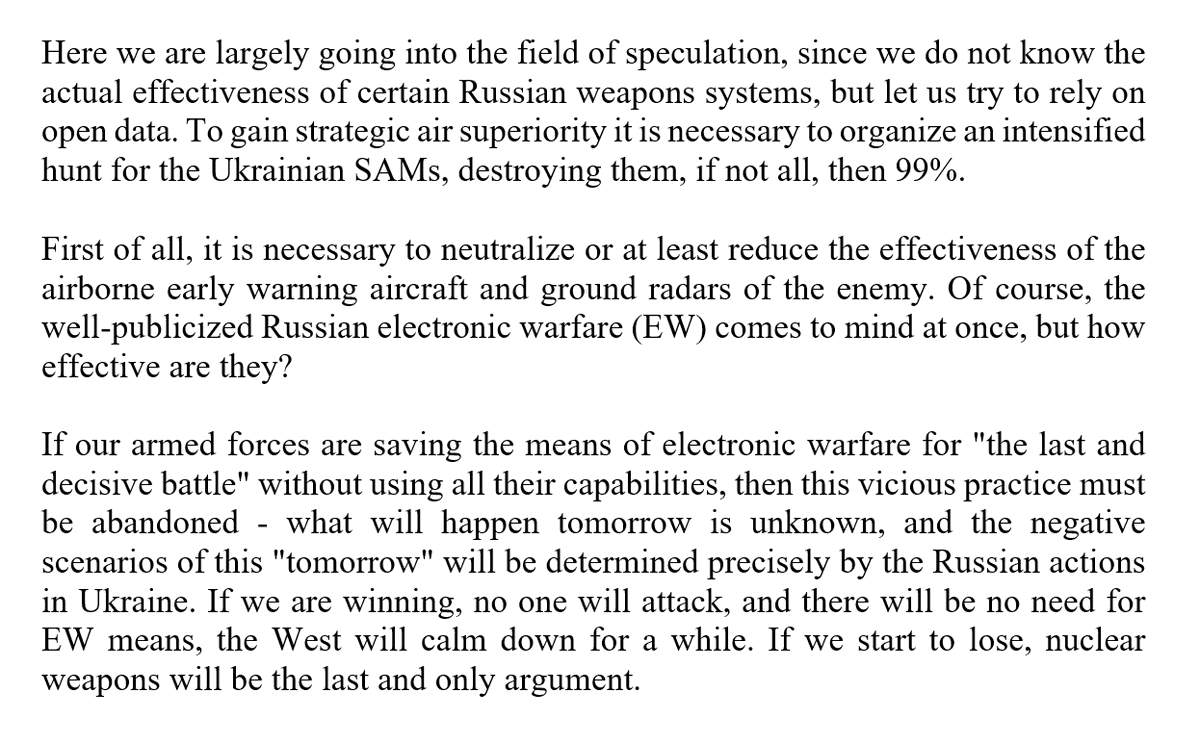
The author believes that it is necessary to go on an Electronic Warfare offensive even at the cost of downing Western aircraft. 
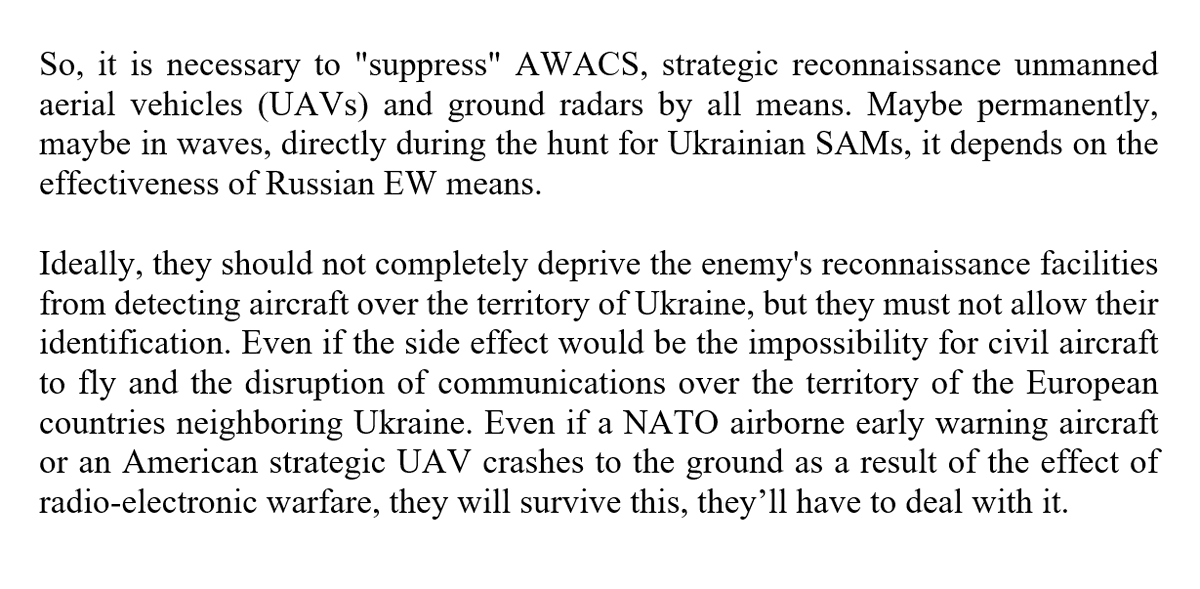
He also says that the Russian military should use decoy UAVs to detect enemy air defences. This is actually being done, but we don't know to what extent.
https://twitter.com/RWApodcast/status/1501285461871915010
The author laments Russia's lack of dedicated SEAD aircraft & says that regular multirole fighters will have to be used for that. 
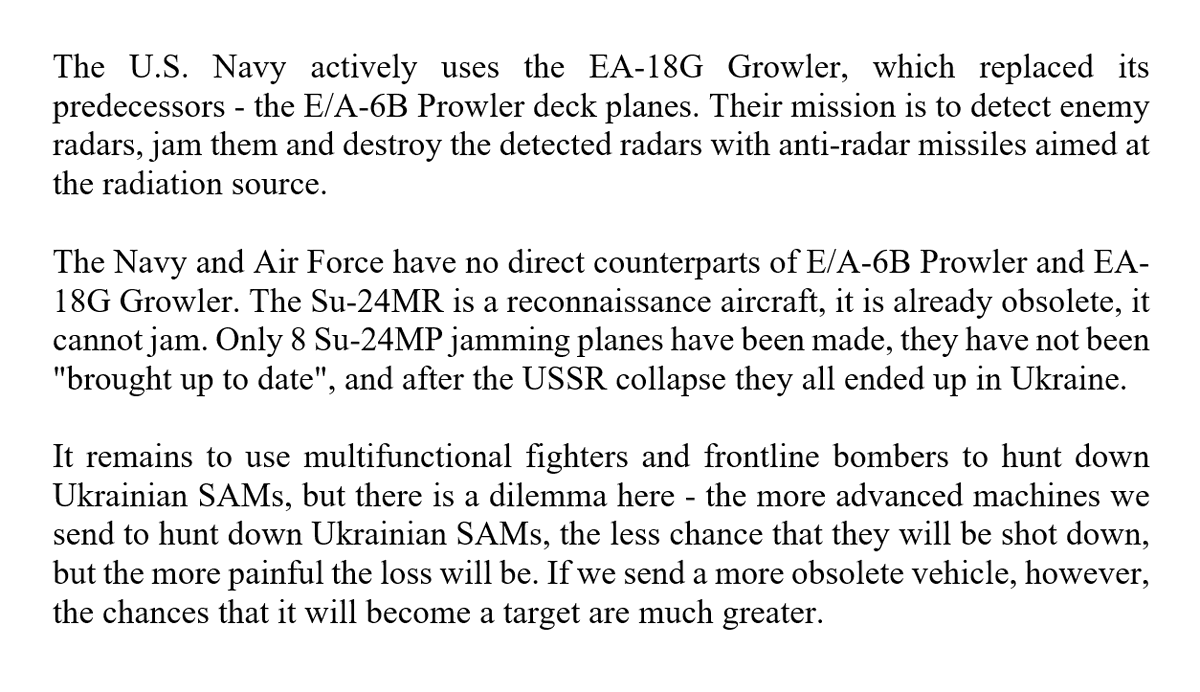
Conclusion: the author believes that Russia must be more ruthless in its approach to the war and that "if the Russian Armed Forces can seize strategic air supremacy over Ukraine, even at the risk of certain losses, then it is vital to do so." 
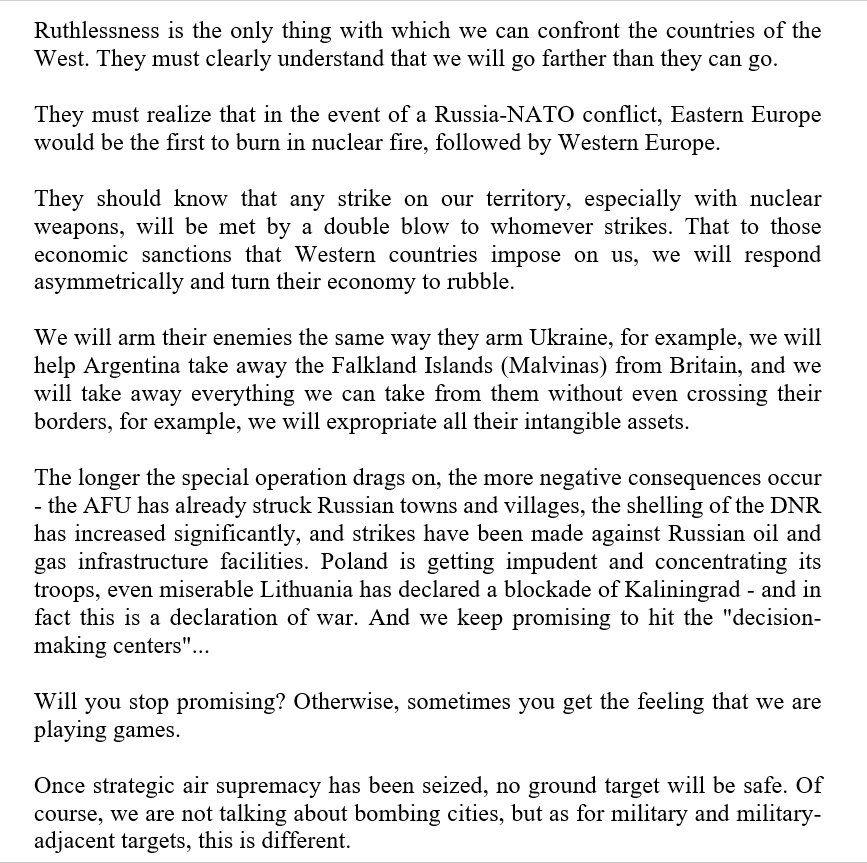
P.S. I just shared this because I think it's noteworthy/interesting in its analysis, I disagree with the author, he is way too cavalier about the huge aircraft losses the Russian military would take with the approach he suggests
• • •
Missing some Tweet in this thread? You can try to
force a refresh

